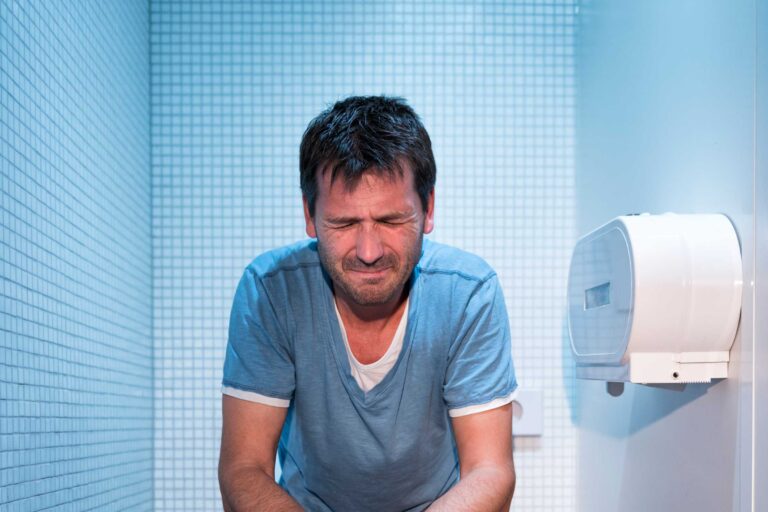What causes an impacted bowel or stool? What are some of the stool impaction symptoms? Which are some of the best fecal impaction treatments? Can impact bowel surgery or impacted bowel treatment at home help? Will laxatives or stool softener deal with an impacted stool? Discover more.
Impacted bowel, stool or fecal impaction meaning or definition
Every healthy person has bowel movement whose movement frequency may vary from one person to another. It is estimated that about 95% of healthy adults will have their bowels move three times a day to a little as three times a week. What of the cases when there is little or no bowel movements? Can this lead to impacted feces and/or constipation?
Impacted bowel, impacted stool or fecal impaction refer to a condition when a large lump of dry, hard stool gets stuck in the rectum. It is most often seen in people who are constipated for a long time. These hard, stone-like feces is often known as fecolith or fecaloma and it cannot pass out of the bowels naturally.
Although constipation often leads to impacted feces, the two are not the same since constipation refers to difficulty in passing stool which is characterized it being dry and hard but not totally being unable to pass it.
Finally, the impacted colon is much similar to impacted stool with the only difference being the impaction happens in the colon and not rectum i.e. feces in the colon “become dry and won’t budge, making it impossible to excrete them from your body”.
Bowel impaction causes or impacted faeces causes
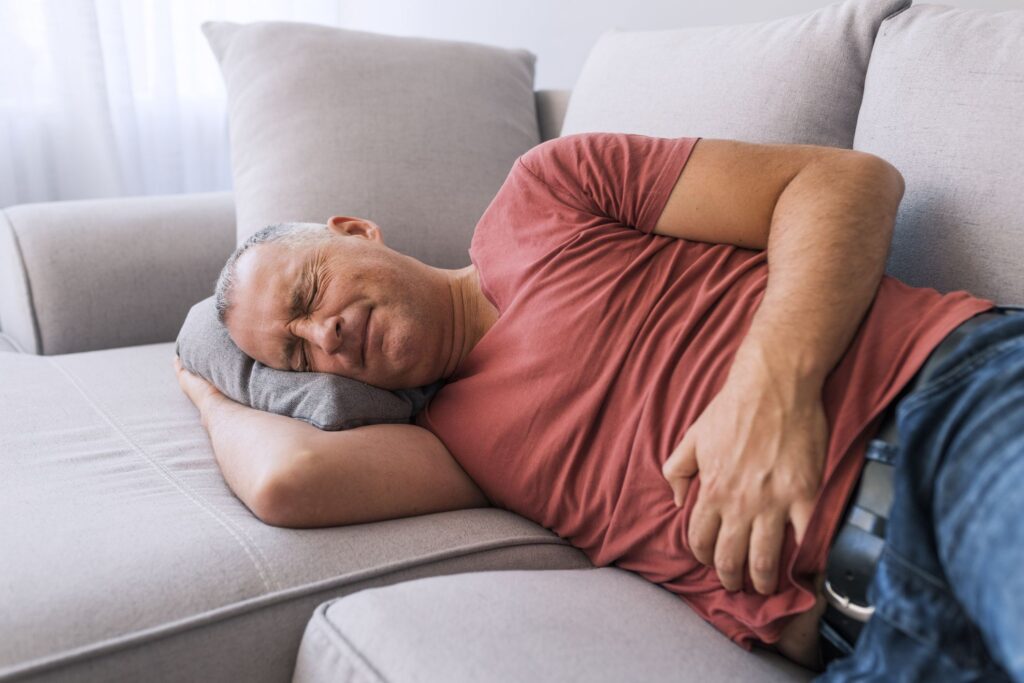
There a number of reasons why you would end up with impacted stools. Some of the common impacted bowel causes include the following.
- The most common reason is chronic constipation (or constipation impaction) which is often painful and make one to fill full, bloated, and to have the urge to go to the bathroom to try push it out.
- Sudden stoppage of laxative use by people who have been using them to deal with constipation problems can cause colon or bowel impaction. The intestines may have forgotten how to move stool on their own.
- Some medicines usage can slow down stool passage. For instance, people who often use diarrhea medication, narcotic pain (opioid pain reliever) medications such as suboxone, hydrocodone, oxycodone codeine and methadone or use of anticholinergics, which affect bowel muscle and nerves interaction can lead to an impacted constipation.
- Going on with impacted colon or stool causes, any disease or condition that often lead to constipation such as irritable bowel syndrome, diabetes, and autoimmune diseases such as amyloidosis, celiac disease, lupus, and scleroderma can cause constipation. Hypothyroidism can cause chronic constipation because of sluggish, slower, or weaker colon contractions can lead to an impacted bowel.
- Dehydration and inadequate nutrients intake
- Digestive complications, and obstruction of the intestinal track
- Jet lag
- Continuously vomiting or having frequent diarrhea bouts
- Ignoring urge to defecated
- During pregnancy, some women tend to have more constipation and thus more likelihood of having impacted feces.
- Note that pregnant women should opt for safer ways to get rid of impacted bowel which will not harm the baby. The good news is, there are some laxatives which are safe for during pregnancy since they don’t get absorbed during digestion.
Besides the above causes, other risk factors that can increase chances of impaction of the bowels include the following:
- You do not move much around and instead you speed most of your time in bed or sited on a chair.
- You suffer from a nervous or brain disease that has damaged nerves that lead to the intestine muscles.
- Immobilized patients who are on a chair or bed have a higher likelihood of having faecal impaction due to lack of exercise.
With that long list of causes, we can now look at bowel impaction symptoms or faecal impaction symptoms which will be important in pointing out how one will feel when he or she has this problem.
Fecal impaction symptoms or impacted bowel symptoms
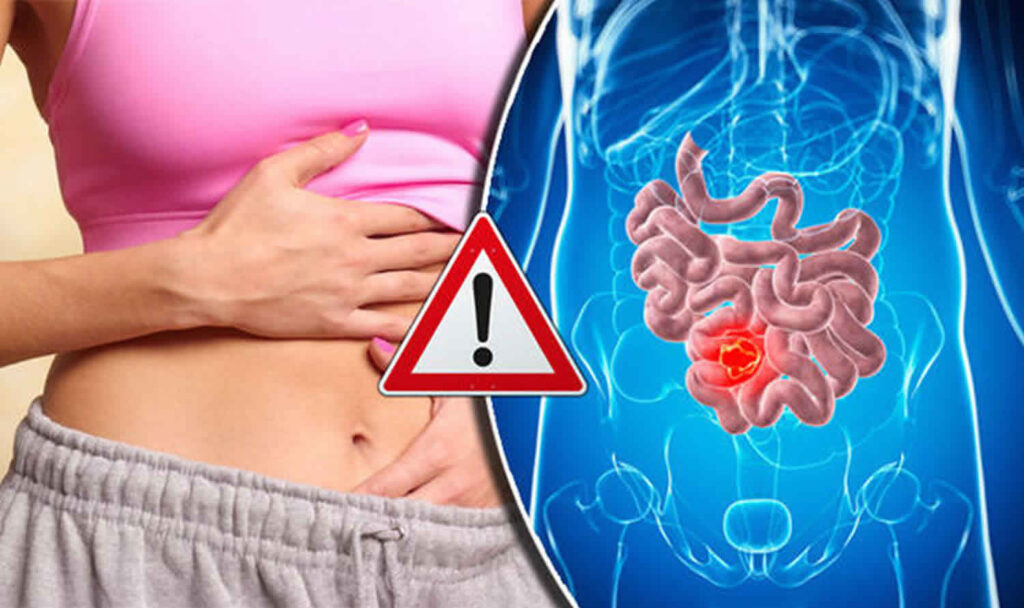
Irrespective of whether you have intestinal impaction especially on your colon or it happens in your rectum, there are some common symptoms of impacted bowel you are bound to experience. So, what are some of the common signs of impacted bowel should one expect?
- Bloating, abdominal cramping and discomfort
- Some people may have leakage of liquid or sudden episodes of watery diarrhea in someone who has chronic (long-term) constipation.
- Strain while passing stool and consequently impacted bowel pain
- Small not well-formed feces
- Another common symptoms impacted bowel is pressure on bladder with some losing control of their bladder thus urine will easily flow out or unable to urinate.
- Lightheadedness and rapid heartbeats due to the strain of trying to pass stool
- The other possible symptom of fecal impaction is rectal bleeding
- Pain on your lower back, abdomen and during defecation and a swollen abdomen
- Feeling the urge to push
- Nausea, dizziness, vomiting, headache and not having the urge to eat
- Unexplained loss in weight
- Restlessness
- Fewer than the usual bowel movements
Besides the above, other additional symptoms of bowel impaction according to healthline.com, include will include fever, dehydration and rapid breathing or hyperventilation. When you have them, you need to seek medical help.
Note that, whereas to some patients most of the impacted bowels symptoms may show, to others, they might not have them. Instead, they will have just they may have problems with circulation, the heart, or breathing. In case of these symptoms, ensure you see a doctor since if left untreated in can lead to death.
Fecal Impaction testing and examination
We have seen some the common signs of fecal impaction. It is now time to look at some of the fecal impaction testing before we look at how to remove or treatments.
The moment you have the above-impacted stool symptoms, and those that closely related to chronic constipation, go to the healthcare providers. The health care provider will examine your stomach, and rectum to reveal if you have any immobile hard mass of stool. Normally, diagnosis will involve feeling your abdomen for any masses or hardened areas.
Afterward, “your doctor will administer a digital rectal exam (DRE) to check for fecal impaction” [healthline.com]. If the doctor suspects an impaction but not certain, he/she may recommend an abdomen X-ray.
Other ways to diagnose impacted intestines or bowels include abdominal ultrasound, use of sigmoidoscope (a small microscope to see the colon and bowels) or doing barium enema. Barium enema involved putting some dye in your rectum and having an X-ray of colon and rectum.
Fecal impaction treatment or fecal impaction removal
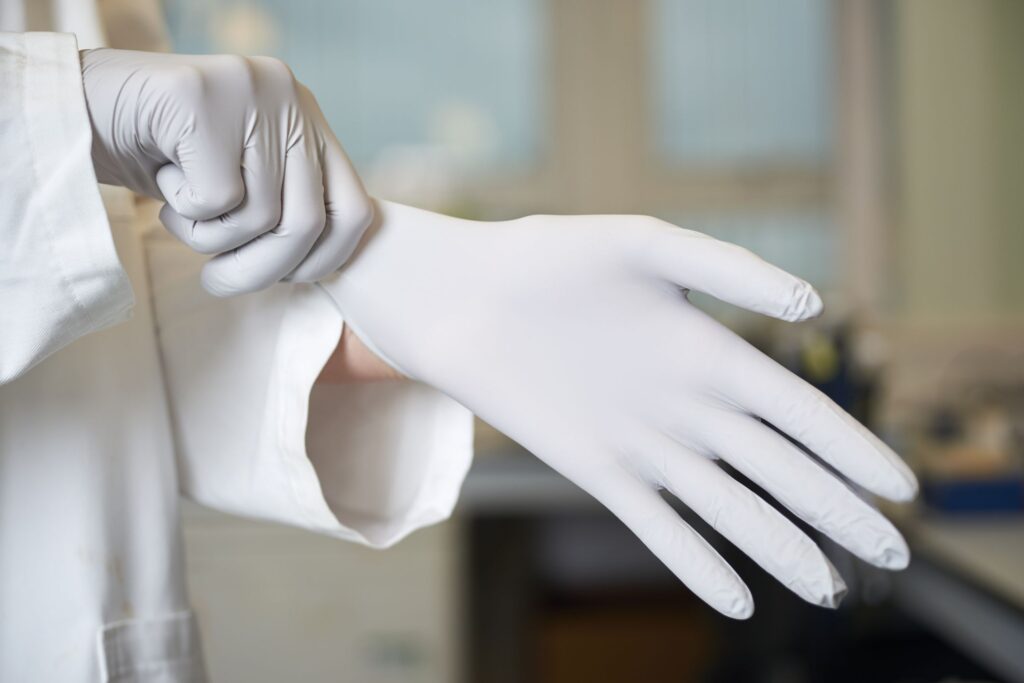
Once it has been determined you have impacted bowels, the first step towards impacted bowels treatment is the actual impacted stool removal. Afterward, measures can be taken to ensure it does not happen again. So how will you remove impacted stool or how is fecal disimpaction done?
In general, impacted stool treatment mainly involves various techniques to actually removal the stool from your bowels (rectum and colon). Common techniques employed include the following:
1. Enema for an impacted colon
Usually, “warm mineral oil enema is used to soften and lubricate the stool” [nlm.nih.gov] in cases where the impaction is not hard and very large. This technique involves inserting an enema (fluid-filled small bottle that has a nozzle) nozzle and squeezing the bottle to release the fluid into the rectum and colon. This will help in loosening your impacted feces.
2. Manual evacuation of the impacted stool – digital faeces removal
In cases where one has hardened and large impaction, manual bowel impaction removal is often employed where the masses are broken down using a gloved finger. It is often recommended patients who suffer from serious neurological problems including spinal injuries. However, digital removal of feces might be applied in impaction evacuation if it is serious.
To do the procedure, a health provider will insert one or two fingers into your rectum and slowly break the masses down to smaller pieces which can then come out. Care must be taken to avoid rectum injury i.e. it should be with small steps.
During the process, it is possible for treatments laxative suppositories to be inserted to the rectum to help in clearing feces i.e. in the removal of the impacted fecal matter.
3. Impacted stool removal by impacted bowel surgery

This is a less common way of impacted bowel removal unless you have a megacolon or excessively widened colon or the bowels are totally blocked. In such cases, fecal impaction emergency surgery may be recommended.
4. Try Laxatives for impacted stool relief
Oral laxatives are often used as a treatment for an impacted bowel. They work by stimulating colon clearing. Sometimes a medicated suppository may also be inserted through the patient’s anus. There are many laxatives. One worthwhile trying is the osmotic laxatives, where products such as magnesium citrate which is good for impacted stool and works well is used. Depending on impaction, laxatives alone ensure disimpaction of stool.
5. Water irrigation
Another possible fecal impaction treatment is water irrigation where a machine is used to push water into your rectum and after a doctor massages your abdomen, another one will be used to suck the waste out.
Besides this, try various treatments for constipation such as movicol, Amitiza, Linzess, cephula, miralax, among others. This will ensure you reduce the likelihood of having an impaction of bowels.
Also, note that colonoscopy might be recommended for patients who have bowel movement changes to confirm it is not cancer.
Impacted bowel treatment at home or fecal impaction treatment at home

I know you are interested in learning how to remove impacted stool at home or some of the home remedies for this problem. To be clear, we do not advocate for any attempt to remove and impacted stool at home. This should be done under the supervision of a healthcare professional to reduce the chances of tears and injury.
Most of the so-called stool impaction remedies are more or less approaches which will help prevent it from happening. In general, while at home, try over the counter stool softeners before going to bed and stop using them once the problem is resolved. Always exercise, and try natural fiber laxatives such as Metamucil.
Furthermore try probiotics to aid digestion, drink lots of water, take healthy diets full of fibers, and try water enemas if you know how they work. A good colon cleanse with cascara sagrada capsules or any other herbal cleanse with this cascara sagrada is also worthwhile trying.
Finally, avoid delaying going to the bathroom, to ensure your body has a regular and healthy bowel movements.
Impacted bowel in toddlers, newborns and children
Impacted stool in newborns, children and toddlers is a problem which many parents may fail to notice. You will often notice leaking stool, pain (baby crying), inability to pass feces, having pea-sized dry stool or uncontrolled watery diarrhea.
It is approximated that 30% -70% of children with long-standing chronic constipation problems tend to suffer from impacted bowel. This is according to The American Academy of Pediatrics publication in 2009, referenced at the end of the post.
In treatment for fecal impaction for children, toddlers, and newborns, the above mentioned American Academy of Pediatrics publication revealed that enemas and the use of laxatives as the two best methods in dealing with the menace.
Furthermore, avoid cow’s milk for children under the age of a year, ensure solid food has enough fibers if the child is already on solid food and avoid toilet training since it may affect a child’s bowel movements.
Impacted fecal in elderly
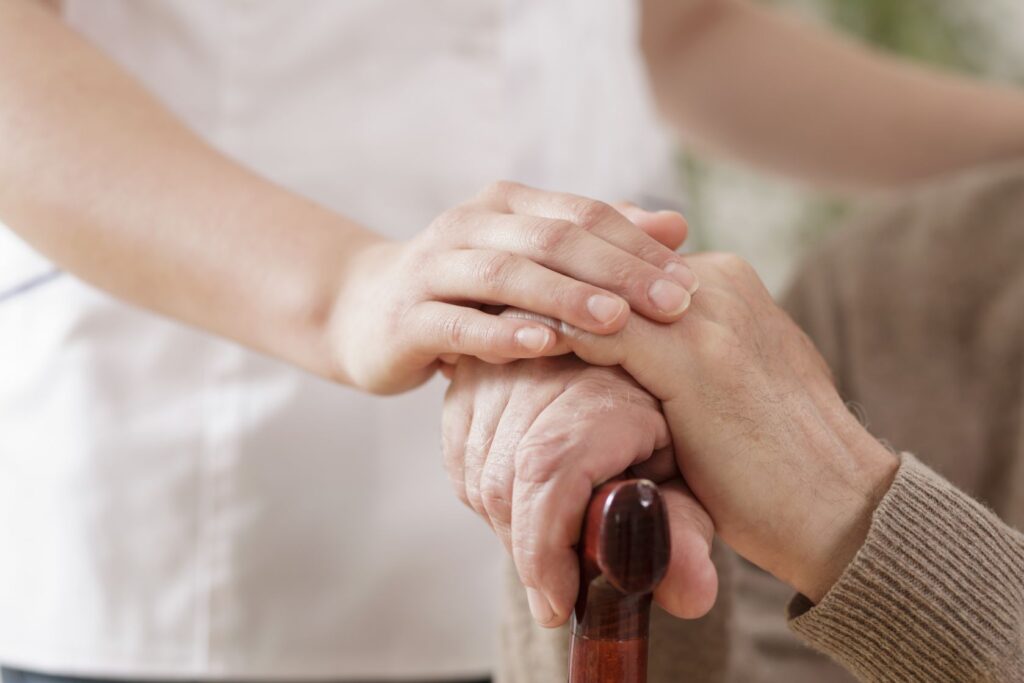
Elderly people often suffer from impacted stool due to less mobility since overall body movement stimulate bowel movements. Symptoms of impacted bowels in elderly men and women are much or less similar to what we have already covered.
Impacted bowels in adults
Besides the elderly and children, even adults can be affected by this problem. The causes are nothing other than what we have discussed. Furthermore, the impacted bowel symptoms in adult are mostly the ones we have already mentioned. Note that one may not have all the symptoms but just some of them. There are no unique symptoms of impacted bowels in adults that the elderly may not experience.
Prevention after bowel impaction treatment

After impacted feces removal, your health care provider such as a trained therapist or nurse should look at your diet history, laxative use, medical issues, and bowel movement pattern.
This will help him/her to advise you on how you can use stool softeners, laxatives, specific exercises and techniques to retain your bowel movements. Also, you might be required to undergo lifestyle changes to avoid such a problem again once bowel impaction removal has been performed successfully.
In addition, try the following to reduce on chances of having bowel impaction happening again:
- Drink lots of water to reduce chances of constipation and dehydration
- Go for foods with high fiber such as whole wheat, oats, vegetables, and pears.
- Reduce on foods that have high sugar content
Complication associated with impacted stool
Some of the complications associated with intestinal impaction especially colon impaction and rectum impaction include rectal tissue tear, anal tears, hemorrhoids, injury and death (necrosis).
Furthermore, prolonged impacted colons can lead to megacolon which might need surgery. If ignored, the, “impaction will damage the mucus lining, affect colonic motility and impair blood flow to the bowel” [healthhype.com].
When to see a doctor

Inasmuch as it may sound not death threatening, ignoring impacted colon symptoms can actually cause death. In case you “have chronic diarrhea or fecal incontinence after a long period of constipation” [www.nlm.nih.gov], blood in stool pain on your abdomen and bloating and pencil like thin feces, see your doctor.
Also do not use laxatives and call your healthcare provider if you have sudden constipation accompanied with some cramping in your abdomen, and you are not able to pass stool or gas.
Conclusion
We have seen a number of symptoms of an impacted bowel to look at for. We have also looked at the causes of impacted bowels, removal, and prevention, home remedies, and much more. It must be clear on how to loosen, clear, unlock, and move bowel impaction or hard stool stuck in your rectum or colon. We hope this post was helpful.

